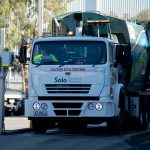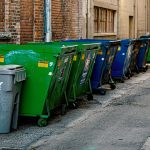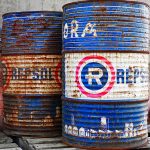Beyond the Dump: Unlocking the Hidden Value of Tyre Recycling
Every year, millions of tyres reach the end of their usable life in Australia. Once destined for landfill, many of these tyres are now being recycled or repurposed into valuable products. This shift reflects a growing focus on waste innovation, driven by environmental concerns and economic opportunities. At the Adelaide Waste and Recycling Centre, we’re helping to lead this change by supporting responsible tyre recycling and promoting new uses for old materials.
The Rise of Tyre Recycling in Australia
For decades, used tyres were treated as waste with few options beyond disposal. This approach created serious environmental risks, including fire hazards, toxic runoff, and the spread of disease through mosquito breeding in stockpiles. With increasing regulation and investment, tyre recycling has now become a more viable and attractive solution.
Tyre recycling processes vary but typically involve shredding tyres into smaller pieces or turning them into crumb rubber. These materials are then used in other industries, offering a sustainable alternative to raw materials. By choosing recycling over landfill, we conserve natural resources, reduce emissions, and extend the life cycle of materials that were once considered waste.
The Adelaide Waste and Recycling Centre supports these efforts by providing facilities and services that ensure tyres are processed responsibly and diverted from landfill.
Tyre Repurposing: Creative and Practical Applications
Beyond recycling, tyre repurposing gives used tyres a second life in their original form or with minimal modification. This can be a highly effective and energy-efficient way to manage waste while encouraging innovation.
In Australia, repurposed tyres are used in agriculture for silage covers or livestock feeders, in landscaping as garden beds or barriers, and in public spaces as playground equipment or outdoor furniture. These creative solutions reduce landfill use and offer cost-effective, durable alternatives to traditional materials.
Repurposing tyres also has strong community appeal. Local councils, schools, and artists have embraced these methods as a way to reduce waste while enhancing public spaces. This hands-on approach to waste innovation demonstrates the practical value of tyre repurposing for everyday Australians.
Innovative Uses of Tyre-Derived Products
Technological advancements have enabled the creation of tyre-derived products that are being used in diverse industries. One of the most common is crumb rubber, which is used in road construction, sports surfaces, and building insulation.
Rubberised asphalt, made from recycled tyres, improves road durability, reduces traffic noise, and increases water resistance. Several Australian states now use this material in major infrastructure projects. Recycled tyre components also appear in construction materials, such as lightweight concrete, sound barriers, and drainage solutions.
These applications illustrate how tyre recycling supports long-term infrastructure goals while reducing environmental impact. The Adelaide Waste and Recycling Centre works with industry partners to ensure these materials are reclaimed and used where they can deliver the most value.
Economic and Environmental Benefits
The advantages of tyre recycling and repurposing extend well beyond waste reduction. From an environmental standpoint, these practices reduce greenhouse gas emissions, prevent soil and water contamination, and lessen demand for natural resources. By keeping tyres out of landfill, we also minimise the risk of fires and toxic pollution.
Economically, the tyre recycling industry supports job creation and fosters innovation. As demand for recycled materials grows, more businesses are investing in processing facilities, research, and product development. Initiatives like Tyre Stewardship Australia encourage sustainable practices across the supply chain, helping to create a robust circular economy.
The Adelaide Waste and Recycling Centre contributes to this growth by promoting environmentally sound disposal options and helping to build awareness around the value of responsible tyre management.
Waste Innovation: Looking Ahead
Australia is increasingly embracing waste innovation as a path to a cleaner, more efficient future. Emerging technologies such as tyre pyrolysis, which breaks tyres down into oil, gas, and carbon black, are expanding the possibilities for recycling, and research into advanced manufacturing and new material applications is opening up fresh opportunities to use old tyres in unexpected ways.
Public education and industry collaboration remain essential to this transition. As more people understand the benefits of tyre recycling and repurposing, the demand for responsible waste solutions will continue to rise. The Adelaide Waste and Recycling Centre remains committed to supporting these developments and encouraging smarter approaches to tyre disposal.
Unlocking the Value of Old Tyres
Old tyres no longer need to be seen as waste. Through tyre recycling and tyre repurposing, they can become valuable resources that support infrastructure, drive economic growth, and protect the environment. With increasing investment in waste innovation, Australia is well-positioned to lead the way in sustainable tyre management.
Do you have used tyres to dispose of? Contact the Adelaide Waste and Recycling Centre today on 08 8295 5077 or via our website to learn how we can help you recycle or repurpose them responsibly. Together, we can unlock the hidden value of old tyres and build a cleaner, smarter future.
Adelaide Waste and Recycling Centre
Our friendly operators are available at the AWRC if you need to clarify any further information.


